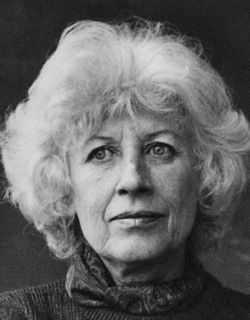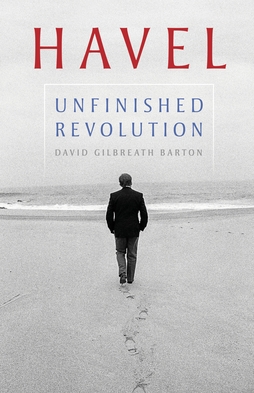
Václav Havel was a Czech statesman, author, poet, playwright and dissident. Havel served as the last president of Czechoslovakia from 1989 until 1992, prior to the dissolution of Czechoslovakia on 31 December, before he became the first president of the Czech Republic from 1993 to 2003. He was the first democratically elected president of either country after the fall of communism. As a writer of Czech literature, he is known for his plays, essays and memoirs.

The Velvet Revolution or Gentle Revolution was a non-violent transition of power in what was then Czechoslovakia, occurring from 17 November to 28 November 1989. Popular demonstrations against the one-party government of the Communist Party of Czechoslovakia included students and older dissidents. The result was the end of 41 years of one-party rule in Czechoslovakia, and the subsequent dismantling of the command economy and conversion to a parliamentary republic.

Charter 77 was an informal civic initiative in the Czechoslovak Socialist Republic from 1976 to 1992, named after the document Charter 77 from January 1977. Founding members and architects were Jiří Němec, Václav Benda, Ladislav Hejdánek, Václav Havel, Jan Patočka, Zdeněk Mlynář, Jiří Hájek, Martin Palouš, Pavel Kohout, and Ladislav Lis. Spreading the text of the document was considered a political crime by the Czechoslovak government. After the 1989 Velvet Revolution, many of the members of the initiative played important roles in Czech and Slovak politics.

The Civic Democratic Alliance was a conservative-liberal political party in the Czech Republic, active between 1989 and 2007. The ODA was part of government coalitions until 1997 and participated in transformation of the Czech economy. The party was supported by president Václav Havel who voted for it in 1992 and 1996 election.

The Civic Forum was a political movement in the Czech part of Czechoslovakia, established during the Velvet Revolution in 1989. The corresponding movement in Slovakia was called Public Against Violence.

Ivan Martin Jirous was a Czech poet and dissident, best known as the artistic director of the Czech psychedelic rock group The Plastic People of the Universe, and later one of the key figures of the Czech underground during the communist regime. He is more frequently known as Magor, which can be roughly translated as "shithead", "loony", or "fool", a nickname given to him by the experimental poet Eugen Brikcius.

Jiří Bartoška is a Czech theatre, television, and film actor and president of the Karlovy Vary International Film Festival. His most notable film roles include performances in Sekal Has to Die (1998), All My Loved Ones (1999), and Tiger Theory (2016), as well as the television series Sanitka (1984) and Neviditelní (2014).

The Plastic People of the Universe (PPU) is a Czech rock band from Prague. They are considered the foremost representatives of Prague's underground culture (1968–1989), which defied Czechoslovakia's Communist regime. Members of the band often suffered serious repercussions, including arrests and prosecution, because of their non-conformist ideals. The group continues to perform, despite the death in 2001 of its founder, main composer, and bassist, Milan Hlavsa. Up to 2023, they had released nine studio albums and over a dozen live albums.
Universe People or Cosmic People of Light Powers is a Czech and Slovak UFO religion founded in the 1990s and centered on Ivo A. Benda. Their belief system is based upon the existence of extraterrestrial civilizations communicating with Benda and other contactees since October 1997 telepathically and later even by direct personal contact. They are considered to be the most distinctive UFO religion in the Czech Republic.

Václav Benda was a Czech Roman Catholic activist and intellectual, and mathematician. Under Communist rule in Czechoslovakia, Benda and his wife were rare in that they were devout Roman Catholics among the leadership of the anti-communist dissident organization Charter 77. After the Velvet Revolution, Benda became the head of an organization charged with investigating the former Czechoslovakian secret police and their many informants.

Alexandr Vondra is a Czech politician and diplomat who served as Minister of Defence of the Czech Republic from 2010 to 2012 under Prime Minister Petr Nečas and has been Member of the European Parliament (MEP) since 2019.
Monika MacDonagh-Pajerová is a Czech activist, university teacher and former diplomat. She was the leading personality from the 1989 Velvet Revolution and chairperson of the pro-European organization ANO pro Evropu which campaigned for Czech membership of the European Union and higher public understanding of European issues.

Olga Havlová was a Czech dissident, activist, and the first wife of Václav Havel, the last President of Czechoslovakia and first President of the Czech Republic. Havlová, the inaugural First Lady of the Czech Republic and final First Lady of Czechoslovakia, was the founder of the Committee of Good Will and a signatory of Charter 77.

Prague 6, formally the municipal district Prague 6, is the largest Prague district.
The Committee for the Defense of the Unjustly Prosecuted was a Czechoslovak dissident organization founded largely by Charter 77 signatories. VONS was founded on 27 April 1978.
The Power of the Powerless is an expansive political essay written in October 1978 by the Czech dramatist, political dissident, and later statesman, Václav Havel.
STUHA was an alternative, independent student movement in the late phase of the Czechoslovak Communist régime. It was gradually formed by Prague students in the late spring and early summer of 1989. The movement was the catalyst that mobilized the university students, later culminating in the demonstration and march at Albertov, Prague, and then on to the city centre, on 17 November 1989.

Martin C. Putna is a Czech literary historian, university teacher, publicist and essayist. He works at the Faculty of Humanities, Charles University in Prague.

Ivan Miloš Havel was a Czech scientist and philosopher. He was the brother of President Václav Havel, with whom he was one of the founders of the Civic Forum.

Havel: Unfinished Revolution is a 2021 book by journalist, psychotherapist and academic David Gilbreath Barton.The book is a biography of Czech statesman, playwright and intellect Václav Havel.















